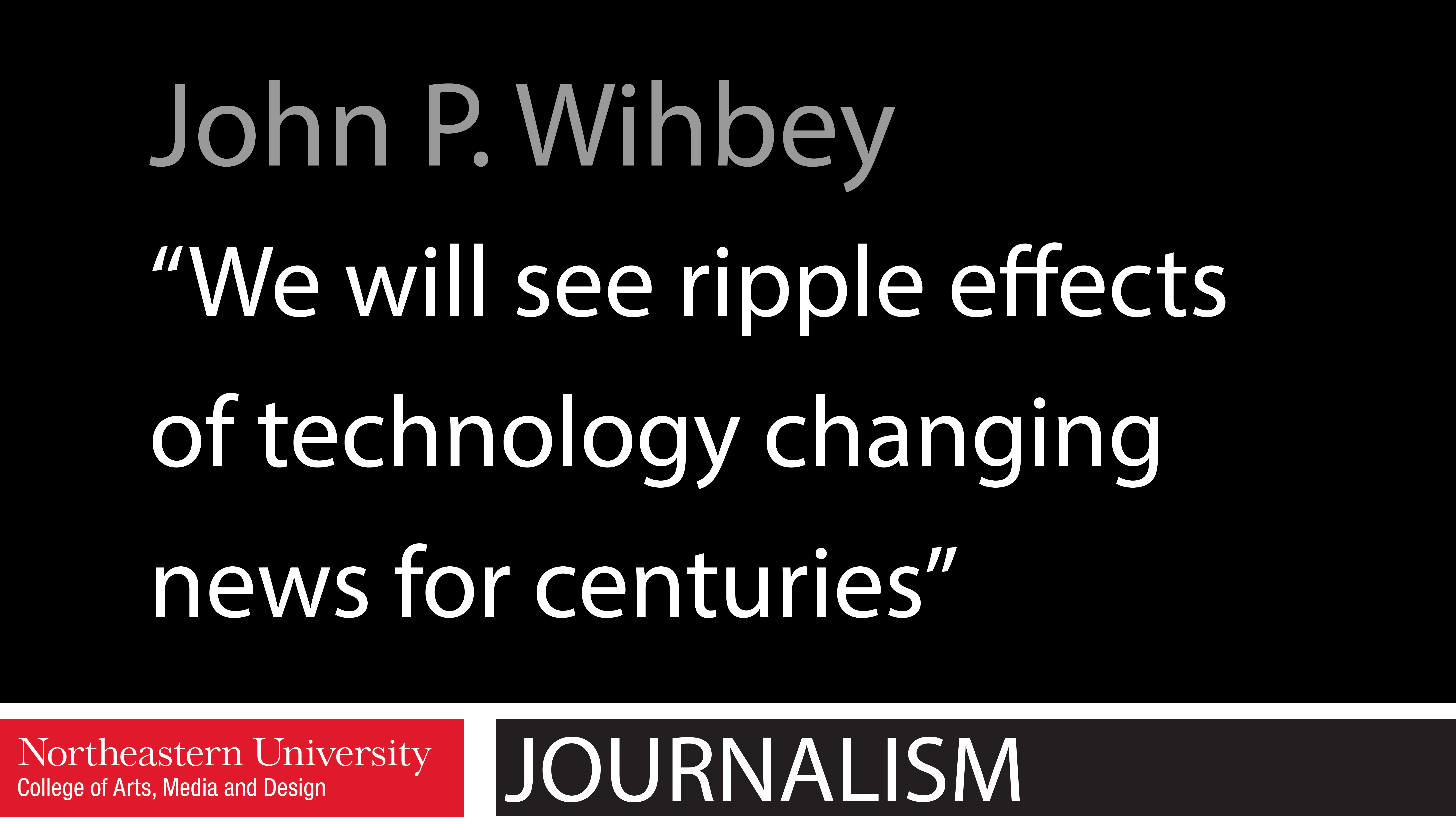“We will see ripple effects of technology changing news for centuries”
The media needs to reinvent its business model and implement new public policies to foster social connection and stay relevant, said Northeastern School of Journalism assistant professor John Wihbey.
In his new book, “The Social Fact,” Wihbey proposes ideas to help the media thrive in a new era of technology and social media. Wihbey shared his ideas on April 11 at “Pizza, Press & Politics,” a speaker series hosted by the School of Journalism.
Wihbey suggests a “new deal for news,” which contains three public policy ideas to help the media keep up with advancing technologies. The first proposal calls for young media companies to receive a monetary incentive for producing news. Wihbey drew this idea from a postal subsidy created in the early days of the United States. He said the subsidy allowed news to spread throughout the country for a low price.
“The very wise founders of the country said, ‘We need to subsidize the diffusion of news,”’ Wihbey said. “We probably need to think in those ways again… I actually proposed that news media startups of various kinds could just be tax-free for a long time.”
Wihbey’s second idea to help news thrive in this technological era is to establish “news neutrality.” He fears telecommunication companies, which carry news on fiber optic cables from newsrooms across the country, will make it more expensive to access news. He said lawmakers should ensure legal protection for news, just as many are trying to do for net neutrality.
“Think about the data caps that many of us have on our phones and think about how much worse that could get if certain sites were quite expensive to access versus others,” Wihbey said. “How could our public policy help to ensure that news is not a luxury good but rather something that everyone can access?”
Wihbey’s third idea is that large companies like Google and Facebook should share revenue from news stories with the media. He said people in the news industry should negotiate collectively with these companies. They cannot do that now because of anti-trust legal restrictions.
“Perhaps the professional news that’s produced… could have some kind of revenue sharing associated with it, so some of that advertising money could flow back to the production of news, which is a public good,” Wihbey said.
Wihbey said in this networked era of social media, journalism will have the most societal value when it allows citizens to participate in the newsgathering process.
“The central goal of journalism is going to be fostering networks of recognition,” Wihbey said. “If you think of MeToo, the Flint water crisis or the Spotlight investigation, what you see is a world in which news media still has some power to set and frame the agenda, but they’re doing it in collaboration with the crowd.”





